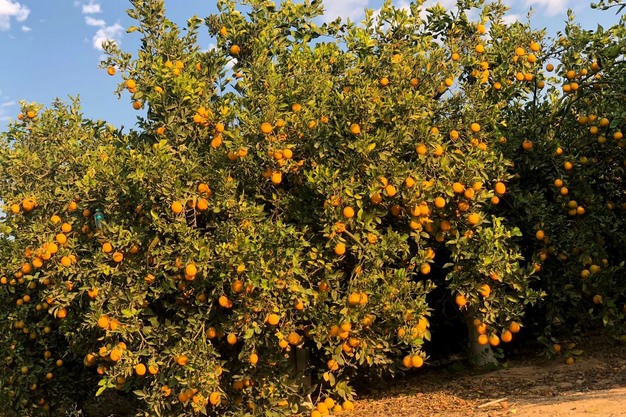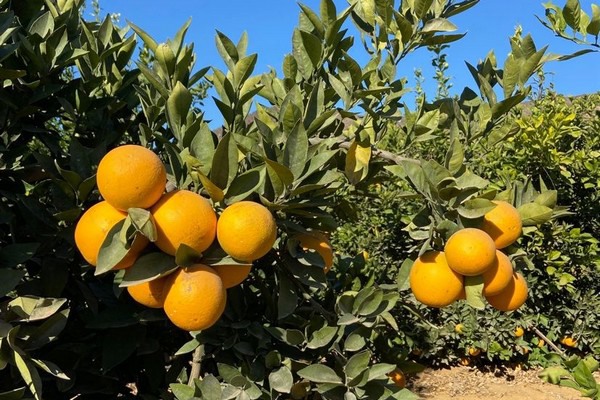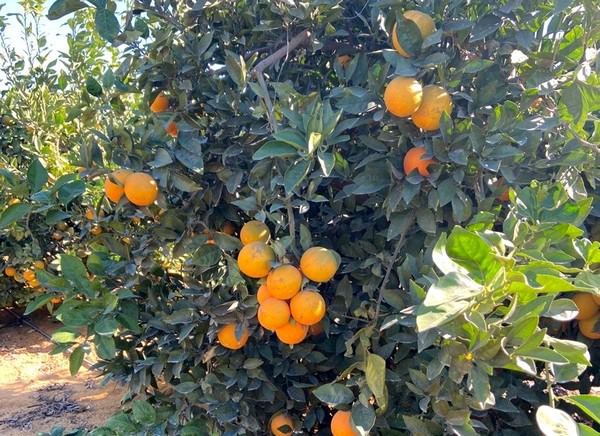In the 2022/23 season, in a context of productive deficit, the orange production in Spain was 785,000 tons lower than in the previous season; a decrease of 20.9%, according to figures provided by the Ministry of Agriculture. Spanish orange imports between January and October 2023 doubled compared to the same period of the 2021/2022 season, exceeding 228,000 tons, according to data from the Department of Customs and Special Taxes shared by FEPEX. This is a high figure but, certainly, much lower than the recorded drop.

"So far in the 2023/24 season, very few containers of Egyptian oranges appear to have arrived in Spain, and on top of that, I believe they are having some difficulties with the marketing, because sales are very slow at the moment," says a Spanish importer. "Due to there being less Navelina this year, I think some people have rushed to import Navels, because they thought there would be a gap, but it seems that the situation this season is different."
"Moreover, we must remember that, unlike what happens in summer or with juicing oranges, at this stage of the season, with Spain's production in full swing, we cannot count on supermarket chains. Not being able to count on the retail sector reduces the amount of available channels for marketing by 65%. And that percentage is probably even higher, given that the remaining 35% also buys national products. Besides, we must take into account that people had bought Spanish Navelinas at a high price, so it is quite logical that this product will be prioritized."
"Besides, while the situation in Europe seems calm, with no rush to buy, in South America, in countries like Brazil or Uruguay, we are selling oranges quite well," he says.
"If maritime traffic is not restored in the Red Sea, there may be extra pressure on the market"
At this time, the Red Sea crisis is putting a strain on international maritime logistics, and this raises another question, which is whether all the volume of fruit that was shipped from Egypt to other continents could end up redirected to Europe. "About 20% of Egypt's production goes to Asia, but if maritime traffic is not restored, there might be extra pressure on the market in the coming weeks. However, it is necessary to bear in mind that fruit is grown according to the market it is intended for, because not all countries have the same MRLs or allow the same active substances."

"The oranges that arrive here must meet the European regulations," he says. "Some may try shipping fruit to the European market that was specifically cultivated for Asia, given the impossibility of reaching the latter; although with the controls that are already in place, the risk of being caught is high."
"I myself work with Egypt and I am receiving a lot of messages, calls and whatsapps from Egyptian producers offering me their fruit, but I will only continue working with my usual suppliers, who have my full trust, precisely to avoid any risks in that regard."
"At this point, it should be said that, as established in all bilateral agreements, international trade is based on 'give and take' relationships, and if we want to export to countries that are also citrus producers, we will have to accept that these countries may enter Europe. But of course, on equal terms."

"We have to protect the European primary sector. I believe we must do so not only because the livelihood of thousands of producers depends on it, but also because it as a strategic sector. Europe cannot end up depending on third countries, as we do in other sectors like textiles, microchips, etc. When something happens elsewhere in the world, as we saw with Covid and now with the Red Sea crisis, our industry suffers from shortages, stoppages, etc. And in the primary sector, we are dealing with food that we need. Ending up without food would be a very serious problem."
